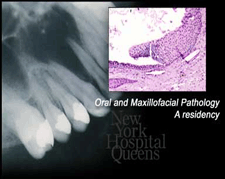المقالات
Xerostemia

Xerostomia - or dry mouth - occurs when the salivary glands don't function properly. This can either be a symptom of a serious health condition, or a side effect of a medication, radiation therapy or chemotherapy. Dry mouth may also occur as a result of stress, diabetes, anemia or a vitamin deficiency. Having a dry mouth may seem to be nothing more than an irritation, but it can cause some serious oral health problems. A lack of moisture in the mouth allows plaque - the sticky film of food residue and bacteria - to build up on your teeth, leading to a greater chance of tooth decay and periodontal disease. In a recent university study, researchers found that older adults with low saliva flow were about 50 percent more likely to lose a tooth than those with normal flow. When there is adequate saliva in your mouth, it acts to bathe your teeth, removing harmful bacteria and food particles. Saliva also neutralizes the destructive acids produced when plaque is present on your teeth, and it helps to provide a protective mineral barrier on the surface of your teeth. Saliva also has been shown to have antibacterial and antiviral properties, and it contains enzymes that help to digest your food. Dry mouth can also have a negative effect on your ability to taste, chew, or swallow your food. A lack of moisture in your mouth can cause your tongue to become sensitive or even painful, a condition called burning tongue syndrome. It can also make the lining of your mouth swollen, red and painful.
* Avoiding dehydrating drinks like coffee, tea and cola.
